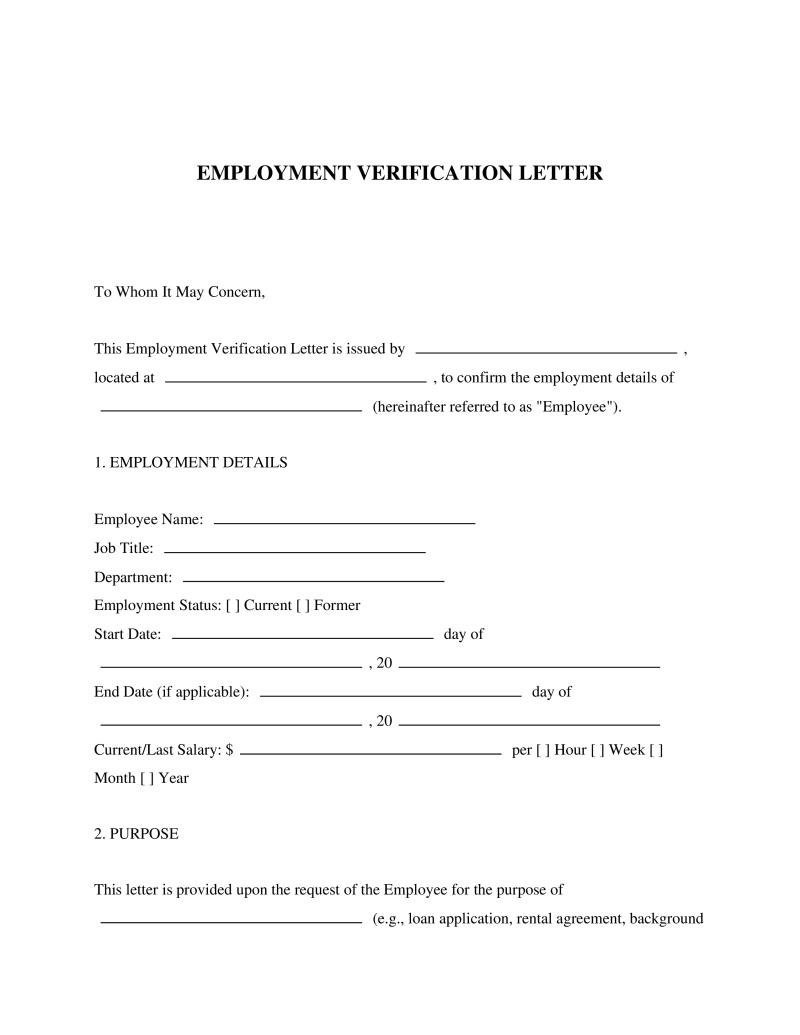An Employment Verification Letter confirms an employee's job status, role, and duration, aiding in processes like loan applications or rental agreements.
Employee Name
Write the employee's full name as it appears on their official documents, including first name, middle name (if applicable), and last name. For example, if the employee's name is John Michael Smith, you would enter it as "John Michael Smith." Accurate information is important, as it will be used for legal records and may affect employment rights and benefits.

Table of Contents
What is an Employment Verification Letter?
An Employment Verification Letter, also known as a proof of employment letter, is a document issued by an employer to confirm the employment status and income of a current or past employee. This legal document is often requested by landlords, lenders, or future employers to verify that an individual is employed and has a stable income.
Key Features
Pros & Cons
Pros
Cons
Common Uses
FAQs
Do you have a question about an Employment Verification Letter?
Example questions:
Not the form you're looking for?
Try our legal document generator to create a custom document
Community Discussion
Share your experience and help others
Legal Notice: Comments are personal opinions and do not constitute legal advice. Always consult a qualified attorney for matters specific to your situation.
Comments (0)
Leave a Comment
No comments yet. Be the first to comment!